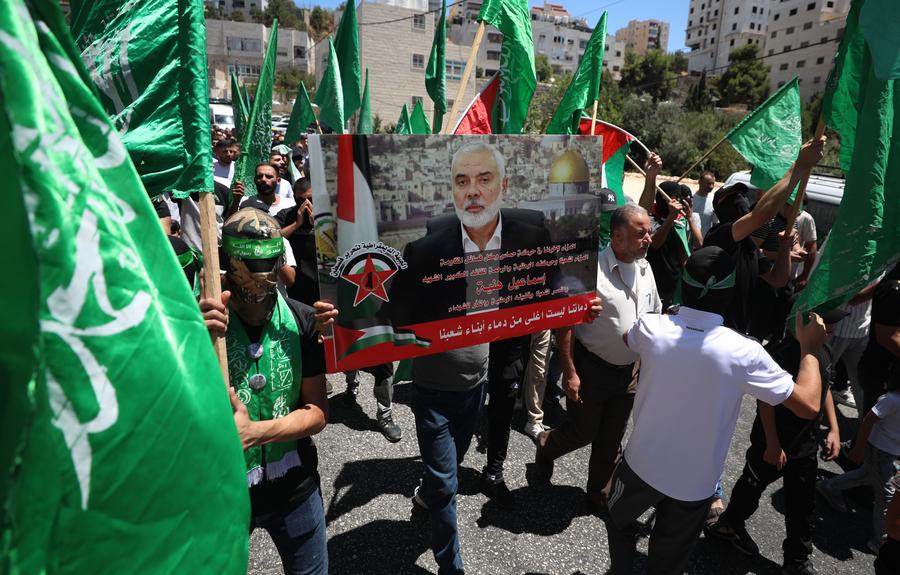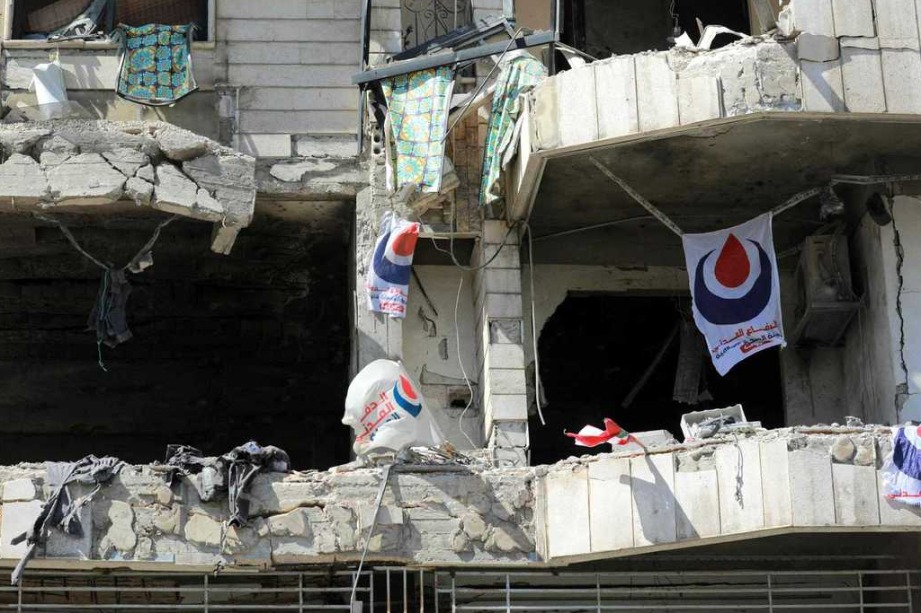Iran stresses its right to self-defense
Teheran mounts pressure on Western powers as US weapons raise concerns


Iran has stressed its right to self-defense in possibly retaliating against Israel and urged Western powers to pressure Tel Aviv into a cease-fire in Gaza instead of dictating to Teheran what it should do.
Iran has accused Israel of the assassination of Hamas leader Ismail Haniyeh in Teheran on July 31, which has escalated tensions in the Middle East. Israel has yet to publicly confirm carrying out the attack.
Nasser Kanaani, spokesman of the Ministry of Foreign Affairs of Iran, criticized on Tuesday the joint statement by France, Germany, and the United Kingdom on the contentious Middle East issue, accusing the Western countries of ignoring Israel's crimes against the Palestinians while dictating to Iran what response measures it should or should not take following the assassination of Haniyeh.
Iranian President Masoud Pezeshkian warned on Monday evening that some Western states' continued support to Israel has emboldened it to keep threatening peace and security at the regional and global levels, according to the IRNA news agency.
Iran also rejected the United States' accusations over its alleged involvement in the Gaza peace talks.
Meanwhile, Hamas slammed Washington for approving a multibillion-dollar arms deal to support Israel amid a surge in Palestinian civilian death tolls in recent months.
"The situation in the Middle East is highly volatile and if global powers aren't cautious, it could escalate into a world war," Abdul Wahed Jalal Nori, an analyst and lecturer at the Department of Fundamental and Inter-Disciplinary Studies at the International Islamic University Malaysia, told China Daily.
The advice from US allies came just as US President Joe Biden's administration approved more than $20 billion worth of arms sales to Israel, including new F-15 fighter jets and tens of thousands of tank and mortar shells, US news outlet Axios reported.
Abdul Wahed said the timing of the announcement could reflect broader geopolitical calculations, where the US aims to maintain its influence in the Middle East.
Increasing turmoil
Given the increasing regional turmoil, he said Washington may be reaffirming its commitment to Israel's security and military superiority, not peace.
"They don't want peace. The situation is very dangerous. … Genocide is taking place. Not one is talking about it (to stop the genocide)," said Abdul Wahed.
"A multibillion-dollar arms deal to support Israel doesn't contribute to regional peace; it only fuels more killing and destruction. Instead, Washington could leverage its influence to pressure Israel to end the war, stop the killing of civilians, and invest those funds in rebuilding peace," he added.
Belal Alakhras, a political analyst and Palestinian researcher at the University of Malaya in Malaysia, noted that the US approval of the arms to Israel contradicts its public statements on a cease-fire and "aligns it with Israel against other regional players".
For months, he said, the US has "tried to isolate the war on Gaza", but Israel's inability to defeat Hamas has "led to recent escalations in Iran and Lebanon, including the assassination of Haniyeh in Teheran, further muddying the waters".
"The US is not acting as a rational power considering its global interests, instead allowing itself to be influenced by Israel's actions which appears to be marching to the beat of its own drum without strategic foresight," Alakhras told China Daily, adding that the critical moment highlights the need for other major powers to "step up to the plate".
"The other concerned actors could potentially join forces to turn the tide and work toward ending the regional conflict comprehensively. Without such efforts, the situation risks snowballing based on US actions in lockstep with Israel, potentially setting the region ablaze if left unchecked," he added.
































